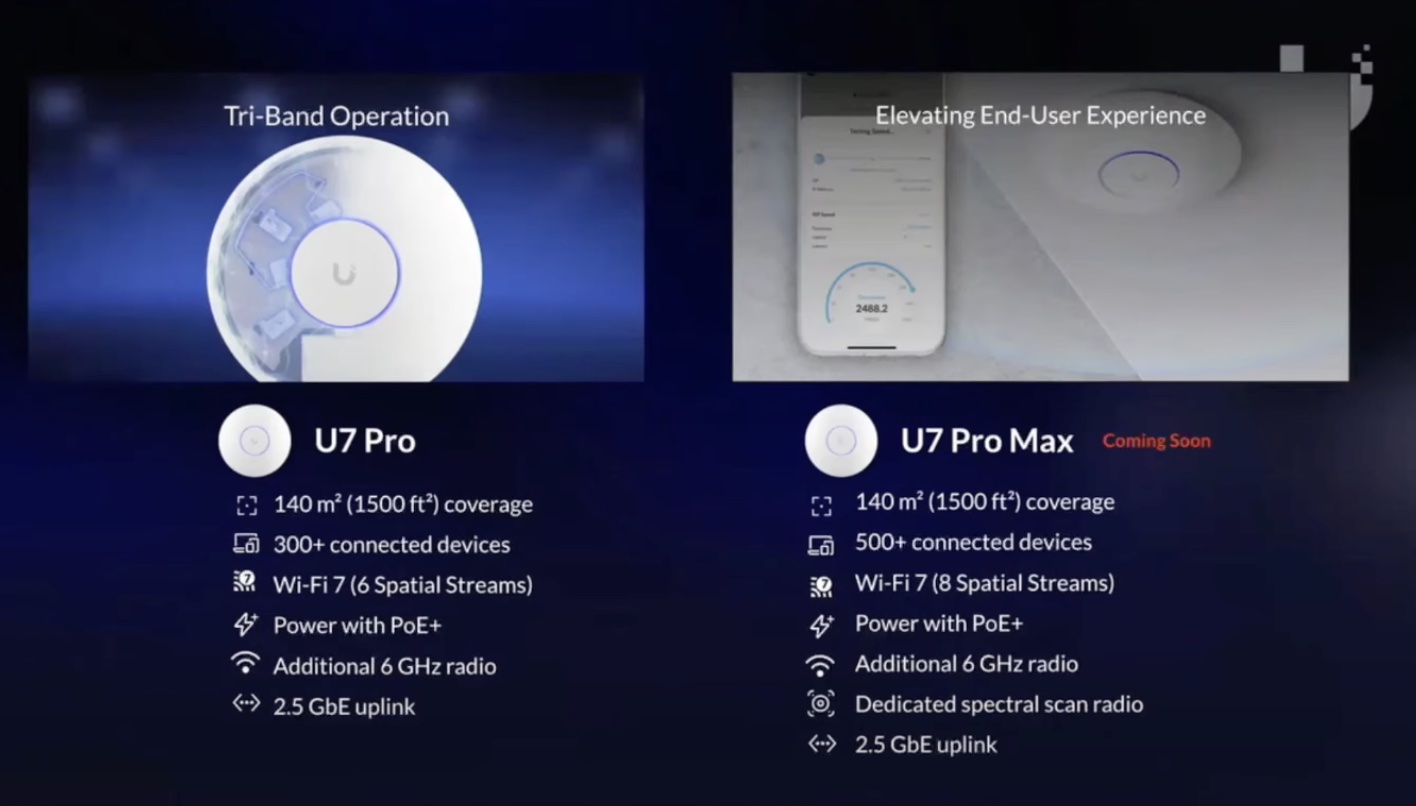From small coffee shops to corporations with global footprints, modern businesses depend on Wi-Fi for connectivity and continuity of operations. With Wi-Fi 7 offering up to four times faster Internet, enterprises are all set to upgrade to significantly faster, more stable and efficient connections. But first, they need a full-stack solution that can cleverly leverage Wi-Fi 7’s improved performance.
In the world of Wi-Fi, Ubiquiti is synonymous with fast speeds and broad coverage. At the recent Mobility Field Day event, Ubiquiti showcased UniFi, their “one-stop pane of glass for networking”, and shared their roadmap for 2024.
“Our goal is not to be number one on the specs list or the best of the best,” says Craig Wojtala, Head of Strategic Partnerships. “Our goal is also not to be the cheapest solution out there either. We really pride ourselves on giving you the best price-to-quality ratio.”
For Ubiquiti, the path to delivering that value goes through a holistic solution, one that constitutes three essential pieces – quality hardware, one interface for management, and full-stack support.
UniFi for a Unified End-User Experience
From dominating the consumer and prosumer space, in 2024, Ubiquiti is shifting gears and pivoting towards the enterprise space. “We want to get involved in larger, more complex environments,” says Wojtala.
As part of their enterprise strategy, the company is launching a new line of hardware, their first Wi-Fi 7 access points (APs). The UniFi 7 lineup consists of U7 Pro, a ceiling-mounted Wi-Fi 7 AP with 6GHz support for interface-free connection and 6 spatial streams for large-scale environments. Next in line is the U7 Pro Max which offers elevated user experience with 2 extra spatial streams, and spectral scan radios with 4×4 MIMO.
Specially geared towards large outdoor venues and high-density applications is the WiFi BaseStation XG. It is a Wi-Fi 5 AP with three 5GHz radios, 12 spatial streams, and a phased array antenna system. The device can provide coverage over 5000 sq. ft. of open space, and support over 1500 connected devices.
During the presentation, Wojtala gave a walk-through of the feature-set of the Ubiquiti Enterprise Fortress Gateway that is also set to join the enterprise portfolio. The gateway is designed to manage over 500 UniFi APs and switches, and support approximately 5000 concurrent clients. Built-in security and networking features include signature-based threat management, anti-malware, ad blocking, SSL decryption, sandboxing, WAN load balancing, dynamic routing, and one-click teleport VPN.
“Stack two of these on your network, when one of them goes down, it will seamlessly fail over. If you’re on a Teams meeting, you won’t even notice,” he assures.

A Distinguished Business Philosophy
Ubiquiti is aware that in a competitive landscape, customer-centricity is the secret to long-term success. This understanding echoes in their customer-first model of business and heavy investments in R&D.
“Our products, they have a really incredibly thoughtful industrial design, and it extends beyond just the hardware, even down to the packaging. We really think of the whole user experience,” emphasizes Wojtala.
The company takes a different approach to selling. “Unfortunately, a lot of vendors out there use the cloud to tether devices to their own licensing server and ultimately holding your network hostage, so you have to continue to pay these fees.”
Ubiquiti breaks the stereotype with a no-license model. Users can make upfront purchases of equipment without the obligation of signing up for a plan. Their UniFi solution features network switches, internet gateways with security and routing capabilities, and the UniFi Site manager that offers full visibility and control of all sites and devices.
Customers can deploy the UniFi software flexibly. The solution can be hosted on customers’ own hardware, with Ubiquiti on their servers, or on a third-party infrastructure. “You can even airgap it and turn off the cloud altogether,” he tells.
Ubiquiti focuses on bringing to the users actionable analytics through its UniFi dashboard. A complete and detailed breakdown is made available at the fingertips of operators for all issues.
“If clients are having trouble connecting to Wi-Fi, we are not just going to tell you that client can’t connect. We are going to tell you what it is – is it a problem receiving DHCP or is it a problem reaching your RADIUS server,” explains Wojtala.
Expanding on it, the team is currently developing augmented workflows for APIs and integrations. “This is where we are working now and see ourselves moving for the rest of the year,” he informs.
Where support is scarce with other vendors, Ubiquiti prides on a robust customer support service which includes expert pre-sales consultation and assistance for mega-size projects, and white glove service for enquires and deployment guidance. A 24-hour hotline is open to all US users, and it is working on bringing the same coverage for its UK and European customers.
Under UI care, all customers are offered priority and free-of-cost return merchandise authorization. Additionally, all products are covered under an unlimited 5-year service plan.
To learn more about what Ubiquiti is doing in the Wi-Fi 7 space and to get a closer look at some of its upcoming solutions, be sure to check their presentations from the recent Mobility Field Day event.

